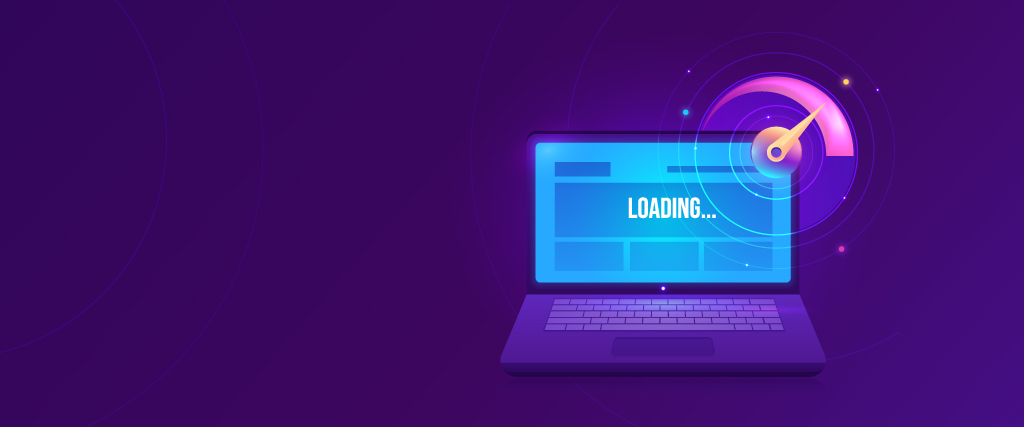Website Speed and Performance: In this digital era, the online presence of your business can seize various opportunities. Having a website is crucial for any business, as it helps in accomplishing different marketing strategies that would help your business grow.
The web has a far more extensive reach than any other form of advertising for your business. The website gives you a scope to reach out to the maximum number of customers and bring your services and products into the limelight.
Now that we've learned how crucial it is for a business to have a digital platform. It is just as important for a site to have a smooth flow of connectivity without any glitches.
The success of your online business is solely dependent on its speed and performance. Those two factors play a major role in raising your business to a certain height.
Below are some ways to improve your Website Speed and Performance -
In this age of flash updates, same-day delivery, you have very little time to convince the end-user to stay on your website. A slow website means zero to less traffic.
The users might not stick to the site when it takes time to load the content. Page size, bad plugins, web hosting, etc are the things that might contribute to making the website slow.
Website Speed and Performance, Website speed tests assess how well a site is performing. Testing a website now and then can help developers track performance downgrades or improvements. Thanks to the many helpful plugins or modules that can assist with the technical heavy lifting.
In order to provide the most optimal, fast, and enhanced user experience, the below points might come in handy for your website.
1. Hosting service plan
It's important to choose a fast website host to ensure better optimization. The most popular type of hosting all over the world is Shared Hosting.
The shared hosting plan usually involves sharing server space with hundreds of companies, where the speed of the site is solely dependent on the number of users accessing the server.
That's the reason why shared hosting isn't as swift as the other types of hosting like VPS or a dedicated server. Virtual Private Servers (VPS) or dedicated servers are much better than a shared plan, as your server will be owned by you and your configurations do not influence other clients.
2. Go for a CDN - Website Speed and Performance
A content delivery network (CDN) is a set of web servers distributed across various geographical locations that provide you with web content depending on your location. Usually, when you host a site on a single server, all user requests are sent to the same hardware.
Due to this, the server takes time to process each request. But with CDN, requests are redirected to the nearest server. As a result, the site loads sooner and works smoothly.
3. Page Caching
Caching is the mechanism of storing the current version of your website on the server and presenting the same until it is changed since the last cache. This saves time and makes things faster altogether as the web page doesn't render over and over again for each user.
4. Code your site mobile-first quality and speed.
These days, it's all mobile web, so it's vital to ensure that your website is mobile-first. The usual desktop sites are being swapped with mobile responsive sites. Developers should first code for mobile format and then enhance the code for tablets and desktops. This would ensure more visitors to your site.
5. Optimize the size of images
Eye-catching images surely grab a lot of eyeballs. Also, a lot of aesthetic images, templates, graphics on your pages, improve interaction. One needs to ensure that their images are in the required size without compromising on the quality.
6. Decrease the number of plugins - Website Speed and Performance
Plugins are not uncommon when it comes to websites. They add extra features to your sites. Unfortunately, your website functions slower as the number of plugins increases, which might also result in safety issues.
Try to avoid add-ons that load a lot of styles, script, or produce a lot of database queries. Plugins can be a necessity but one must include only the necessary ones.
7. Minimized HTTP requests
An HTTP request is made for all elements like images, stylesheets, and scripts. So, the more components, the more time it takes for the page to load. Keeping the requests minimal will speed up your site.
Conclusion
Today, a user expects web pages to load quicker than the light passing in a second, with the emerging technologies, that day isn't far when that actually happens.
Website speed has a huge impact on user experience, conversion rates, and SEO. Improving one's Website Speed and Performance is vital for drawing traffic and keeping them engaged.
Google also offers PageSpeed insights for more brief performing testing. Google Chrome DevTools can help developers in evaluating their site's performance. Hope this article might help you in knowing various methods to implement in increasing your site's speed, which affects its overall performance.
Read More:
WHAT AFFECTS YOUR INTERNET SPEED?

